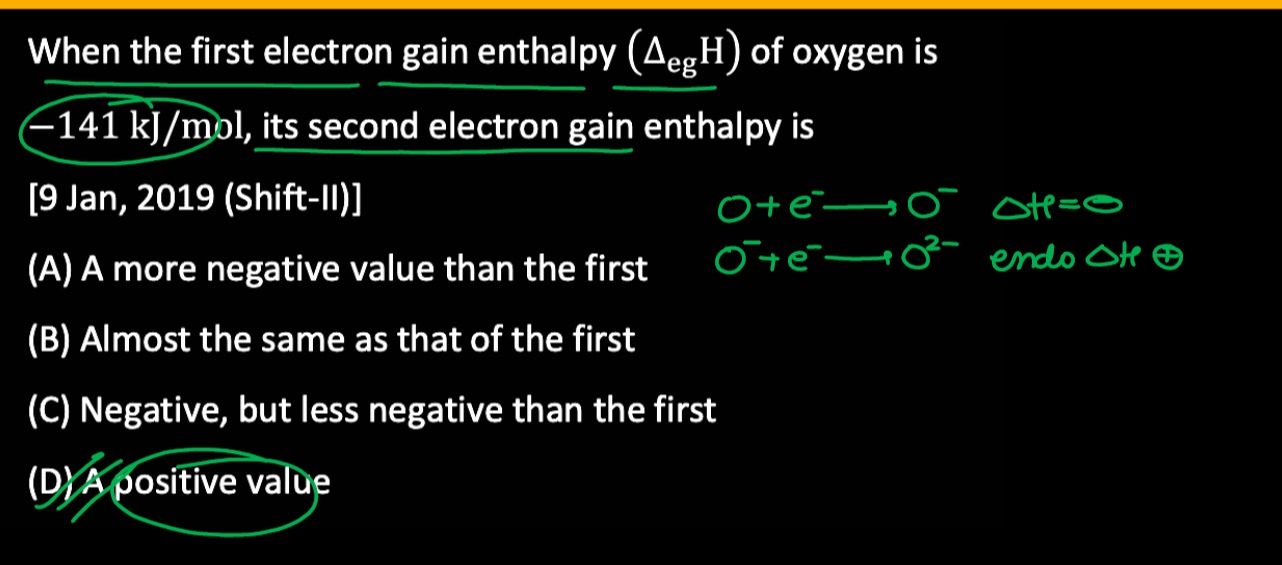Question
Question: When the first electron gain enthalpy ($\Delta_{eg}$H) of oxygen is -141 kJ/mol, its second electron...
When the first electron gain enthalpy (ΔegH) of oxygen is -141 kJ/mol, its second electron gain enthalpy is

A more negative value than the first
Almost the same as that of the first
Negative, but less negative than the first
A positive value
A positive value
Solution
The first electron gain enthalpy is for the process: O(g) + e− → O− (g). This is exothermic as oxygen is electronegative. The second electron gain enthalpy is for the process: O− (g) + e− → O2− (g). In this case, an electron is being added to an already negatively charged ion (O−). This addition is unfavorable due to electrostatic repulsion between the incoming electron and the negative charge on the ion. Therefore, energy must be supplied to overcome this repulsion, making the second electron gain enthalpy positive (endothermic).
